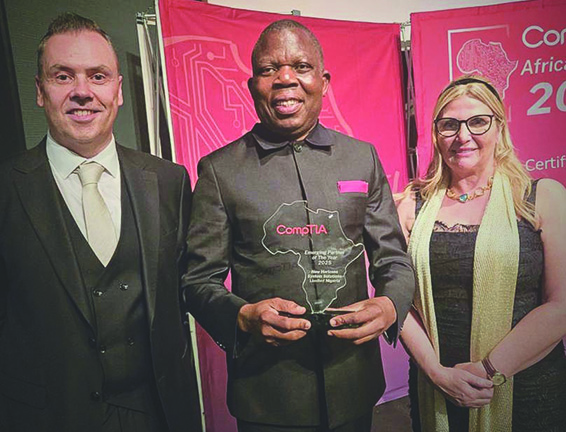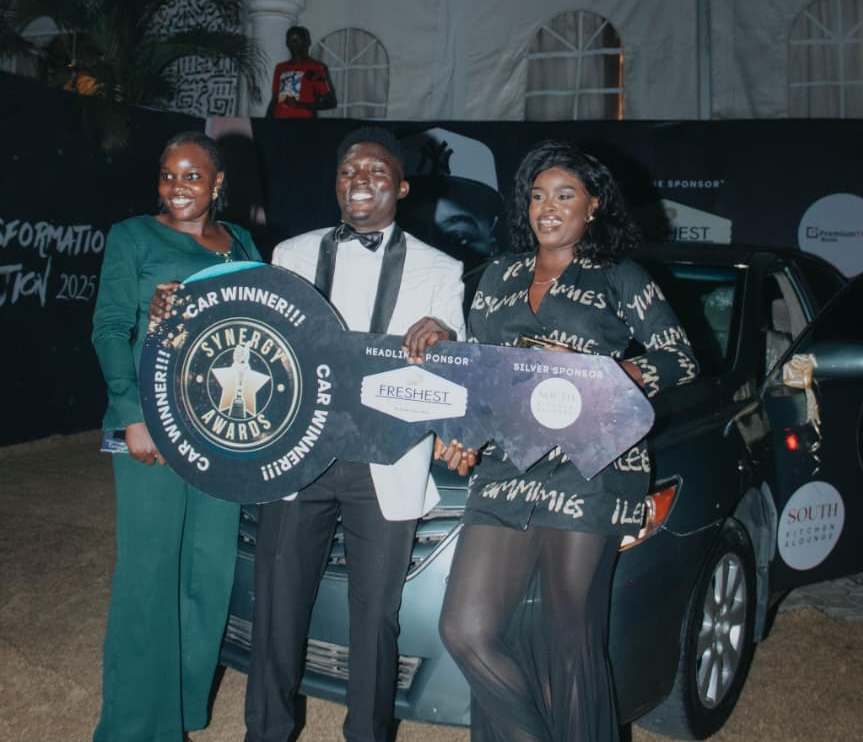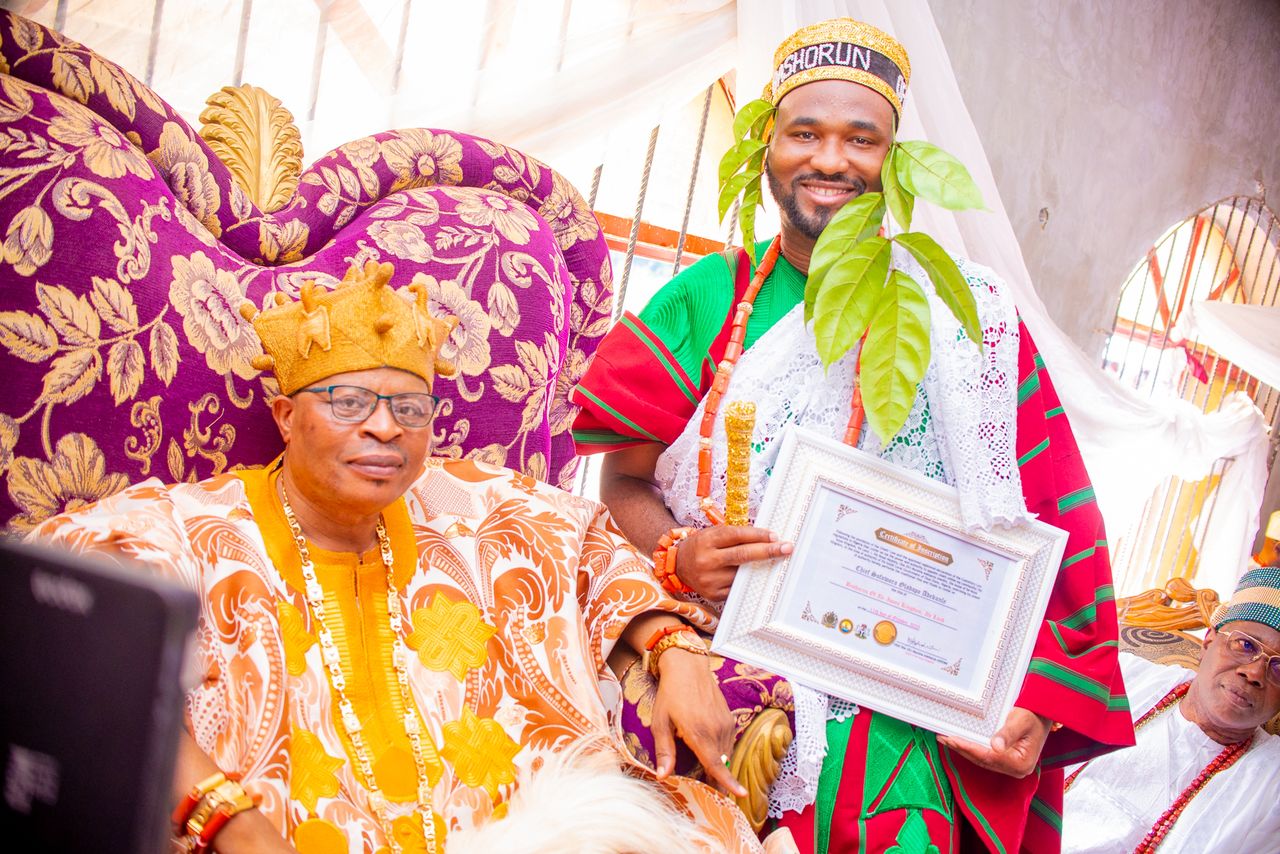 If Cill Soul is known for anything, it’s her sonority and sincerity. Her soft vocals open the track, ushering in her lyricism in Igbo: “Ekwela ka ihere mee anyị/ Hapụ mpako gị n’azụ gi/ Ka anyị wee mee ka echi ka mma/ Obere mmiri taa ga-abụ nnukwu echi.” On her latest song, Echi, the songbird weaves a heartfelt message within the same folk-leaning Soul that populates her discography.
If Cill Soul is known for anything, it’s her sonority and sincerity. Her soft vocals open the track, ushering in her lyricism in Igbo: “Ekwela ka ihere mee anyị/ Hapụ mpako gị n’azụ gi/ Ka anyị wee mee ka echi ka mma/ Obere mmiri taa ga-abụ nnukwu echi.” On her latest song, Echi, the songbird weaves a heartfelt message within the same folk-leaning Soul that populates her discography.
If Olivia Rodriguez and Onyeka Onwenu had a hybrid version, it would definitely sound a lot like Cill. Her music mirrors the sombre of alternative RnB and the Igbo-centricism of Onwenu and other iconic highlife pop stars. And on Echi, she carefully selects a topic of core relevance to every culture on earth: environmental sustainability.
“Teach the young/ To know they have a part/ The earth is ours to plough/ Not to plunder,” she continues singing on Echi, with the song’s dramatic bass percussion giving it a stamp of solidarity. The song is testament to the rising discography of didactic or aspirational messages sweeping across Nigerian music.
From her debut in 2020, Cill, born Chioma Ogbonna, has carved a niche in the RnB and Soul scene, with a handful of captivating releases including songs like “Lagbaja”, “Self Aware” and her 2022 extended play Something Cilly. Prior to her sojourn in music, she’s proved her mettle in corporate finance working for KPMG, as well as being a school teacher.
She also created The Songwriters Community, a peer-to-peer mentorship group for songwriters. As a songwriter, she is credited for writing moving film scores such as the official soundtrack for Nollywood blockbusters like Biola Alabi’s Lara and the Beat, and Belinda Efa’s Miracle, among others. She is also a fellow of the Music for Democracy network by the World Movement for Democracy.
Catching up with The Guardian, the singer peels the layers off behind her latest track, Echi, revealing her muses, creative process, as well as her growing knack for creating music for advocacy, among others.
For your new release, what inspired your latest song?
I’d say a couple of different things led up to the song’s release. First, it started with participation in a climate change- should I say, program, training, or fellowship, which I was part of in 2023. I was selected as one of the creatives who attended the training along with climate change professionals, and it was a training that happened in Spain. For me, it was like, I’ve always been interested in the environment and things that have to do with keeping the environment clean, respecting nature, and all of that. So I was eager to also learn professionally what climate change entails. So I signed up to be selected as one of the creatives, and then I got selected. I went there, and the whole process just got me thinking about how to match my learnings from that experience with my music in a creative way, you know? Because when you hear climate change, it almost sounds very vague and full of jargon. I was looking for a way to break down what I had learned, especially in the African context, because, yeah, we are aware that there’s something called climate change and all of that. But we are kind of in our own stage, if you get what I mean—we are still at the very basic level with things like waste management. We are still trying to get our hands on proper waste management and recycling. So I wanted to put it in our context. We also have places where there are real environmental issues, like flooding, oil spillage, and communities that have been completely torn apart by unfortunate events related to climate and environmental change. So, for me, that was the start of everything, and I just wanted to write music that addressed that. And yeah, so I came back to Nigeria after the training, and, you know, it took me a while to break down everything I had learned and know exactly how I wanted to tell that story.
What was the process like?
So, it happened in October, and then I came back to Nigeria because I had other travels. So, finally, I came back to Nigeria in January, and I was trying so hard to write a song. I was like, you know, I started with one idea, and I just felt like it wasn’t it, so I left it. I left it and went back to it a couple of times, but then it just wasn’t clicking. It felt forced, do you get what I mean? Like forced creativity. So I just left it. I was like, you know what? I’ll come back to this some other time in the future. Then one morning in April 2024, I woke up, and I was just in the mood to write a song. It was as though I didn’t know how to explain it. I think the closest I can compare it to is something I’ve never experienced before, but I would say it’s akin to birth pangs, almost like a woman trying to give birth, and the baby is coming. It was like the song was coming. So I picked up my guitar and decided to just think. Like, I was singing, I wasn’t writing any lyrics. I started singing, playing a tune, and just playing my guitar to it. And then I was like, okay… and I started moving into what sounded like a verse. It was very organic because I just started singing: Time to take, time to take a stand, the world all over. That’s how it started. Then I went back to that tune, which was sort of the chorus, to work on it. I just knew that I wanted it to be in the Igbo language because, at the time, I had started experimenting a lot with writing in Igbo. But I’m not very fluent in Igbo, by the way, so I really have to think about what I’m saying to craft the words properly. I knew that I wanted to write in Igbo, and every line of the chorus would be in Igbo. So I took that tune and started looking for what I really wanted to say. The song wasn’t just about climate change, it wasn’t limited to that box. It also talked about our everyday actions and how those actions affect our future. Because really, that’s the main issue when it comes to climate change, there are so many things happening that we’re not paying attention to because we don’t fully understand the impact, or maybe we’re just not prioritizing it. And in the long run, over time, even now, we can already see the impact. And there’s even more to come, more consequences that could result from our actions. So I really wanted to pass that message of leaving your pride behind and knowing that little drops of water make the mighty ocean. The small decisions we make today will impact the future. That’s what I wanted to write about. Then I started singing in Igbo, and I tried to shape that into a beautiful chorus. And that’s literally how it started.
Why did you decide to sing in the Igbo language?
I mean, it’s beautiful. Language is such a beautiful thing. And I think there’s a part of me that has always been connected to it. When I was young, my dad used to play a lot of music from an artist. I think he’s a gospel artist, but I’m not entirely sure because I’ve also heard some of his other songs that were just about life. His name was Patty Obasi. He used to play the guitar and sing in Igbo. So there’s this part of my brain that I think is kind of stuck there, and I want to recreate that, the simplicity and beauty of the language combined with the guitar. There’s just something about it that brings me joy. I also think about people like the late Onyeka Onwenu, of blessed memory. There’s a song of hers from my childhood that I love. That song is always somewhere in my spirit, almost like it’s woven into the fabric of my being. So I’ve always wanted to do this. And now, I’m embracing it more. Before, I wasn’t as confident because I didn’t think I was good enough with the language. But now, I’m gaining more confidence, even in making mistakes or sounding weird. I don’t mind anymore because I want to communicate in my language. That’s my language, my mother tongue. My parents are Igbo, and I want to learn the language. So for me, it’s also a learning curve. I’m learning along the way while also carrying my audience along with me.
Okay, awesome. Are you going to try to make more music about climate change? Or do you have other things you like to use music to advocate for?
Oh yeah, that’s a good question. So, in the past, I have written music about good governance. I’ve written songs about similar themes, but not specifically about climate change, more about everyone playing their part in doing the right thing. I have songs like Oh, You’ve Got and They Sound Their Alarm, which were inspired by my experiences while volunteering with a civil society organization focused on elections. So there are songs like that. And in the future, of course, there will be more songs that speak to the things I’m passionate about. I think I’m going to put together a body of work that brings all these songs together, songs that talk about the things that truly matter to me. Ichi will be there. There’s also a song I wrote called On Woman that I’ve performed everywhere but never recorded, until now. I’m finally recording it, so that will probably be on the project as well. I just want to create a space where, if you’re looking for that kind of music from me, you can easily find it. You get what I mean? Yeah.
Alright, so you’re a musician and also have a corporate background. How has it been like balancing your musical career and doing other things?
Oh, well, right now, I’m very focused, like, very zeroed in, on my musical career. This year, I moved to the UK on the Global Talent Visa. So for me, it’s an opportunity to expand my music—to the UK, to Europe, to more live performances, and to build an audience here. There might be opportunities to do other things, I don’t know, and I’m very open to that. But right now, I’m fully focused on the music and just seeing where that takes me in this new place.
So what, what would you say is the vision for Cill?
I would like to say that the legacy I want to leave is putting out music that the next generation can learn from and be inspired by. Growing up, I listened to very inspiring music, the kind that shaped my mind and made my childhood worthwhile. I want to create music that children can listen to, clean music that can help in their development. And I’m happy when I hear my nieces singing my songs. You know how there are some songs you just can’t play for children because you have to censor them, even on the radio? I want to make music that kids can listen to, learn from, and have as part of their childhood memories. Beyond that, I want to create music that connects with people, their stories, their love lives, relationships, and friendships. I want to make music for everyday people. It always excites me when someone reaches out to say that my songs mirror their life. I have a particular fan who tells me that every song I’ve released since 2018 reflects exactly what she’s going through. If she’s heartbroken, I’ve just released a song about heartbreak. If she’s in love, I’ve just dropped a song about love. That gives me joy. I want to write songs that people can truly connect with—songs that are timeless. I also want to be able to freely talk about the things I’m passionate about and use music as a tool for that. I want my music to be true to me, almost like an extension of myself. I want people to hear my music and immediately understand the kind of person I am, not just creating music for entertainment (which isn’t a bad thing), but music that entertains and also inspires. That’s the legacy I want to leave.
There’s another important part of this process. So, I just explained the songwriting part, but after I wrote the song, I reached out to a producer I had met months before. He’s based in Jos, and I liked his work. I had always thought I’d collaborate with him in the future. So, when I finally wrote the song, I sent him a voice note. When he heard it, he was in awe. He then sent me back a beat, a draft of something we had worked on earlier. While I was recording the voice note to send to him, I had this sudden inclination, this idea to feature children on the track. It felt like I shouldn’t be the one singing the chorus. It was almost as if the voices of the future should be calling out to the future. The next step was reaching out to a group of children who could represent what I had in mind. The only people I could think of, who I already had a relationship with, were the children from the Destiny Trust Foundation. They work with children from less privileged communities, mostly street children. The organization actively rescues kids from the streets, takes them into a home, and provides them with education. They have a well-structured system, including a music teacher, a farm for sustainability, and even solar-powered housing. It was the perfect fit. When the producer sent me the track, I recorded my vocals over it in the way I wanted the children to sound. Then I reached out to the organization and shared my idea. They were very excited. We had a few rehearsals with the kids, and in a way, they contributed to the songwriting process.
It was really beautiful. After rehearsals, we recorded the song, and then we moved on to shooting the music video. One of the things I wanted to do was capture an environment that was truly experiencing the effects of environmental challenges. The place I had in mind was Ogoni. So, we traveled there with some crew members. It was quite the adventure, scary at times, but I was happy we went there in person rather than using random footage from online, which wouldn’t have captured the depth of what the people were going through. The community members were very welcoming and supportive. We also shot part of the video in Lagos with the children. It was a full-scale project. Thankfully, we received funding from the Ford Foundation via Accountability Lab, which lifted a huge financial burden off us in terms of production costs. Looking back, when I think about 2024, this project stands out as the thing I’m most grateful for. I’m generally not the type of person who boldly asks people to collaborate with me, but I’m so happy I stepped out of my comfort zone. I asked for support, I brought people on board, and it all came together beautifully, thanks to the Destiny Trust Foundation and everyone involved. And that’s the story behind the making of Echi.





